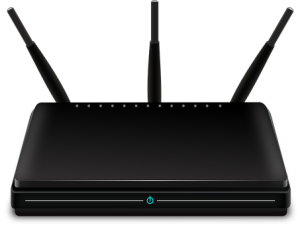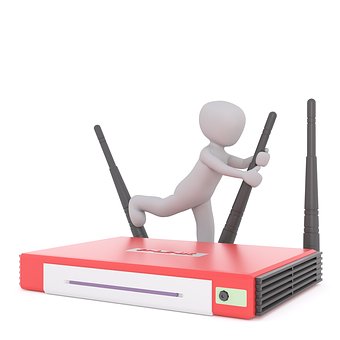Router Keeps Dropping Internet
In today’s digitally connected world, a reliable internet connection is paramount. Whether it’s for work, entertainment, or online gaming, the frustration of a router dropping internet connection can disrupt our daily lives. However, fret not, for this blog aims to be your guiding light through the labyrinth of connectivity issues. We will explore a comprehensive set of troubleshooting steps and solutions to help you regain control over your home network. From checking physical connections to delving into the depths of router settings, we’ll equip you with the knowledge and tools to address this common problem and ensure your internet connection stays stable and consistent. So, let’s dive in and navigate the challenges of a wifi Router keeps dropping internet together, ensuring a smoother online experience.
Why Router Won’t Connect To Internet:
A frustrating and common issue that many individuals experience with their internet setup is the wifi Router keeps dropping internet problem. This problem can disrupt online activities, causing inconvenience and annoyance. Several factors can contribute to a router’s propensity to drop internet connections, and understanding these reasons is crucial for troubleshooting and finding potential solutions.
-
Router Interference
One of the primary reasons of WiFi Router keeps dropping internet connection issue is interference. Routers operate on specific radio frequencies, and when other electronic devices or neighboring routers operate on the same frequencies, it can lead to Router dropping internet issues. This interference can disrupt the router’s ability to maintain a stable connection.
-
Router Overloading
Routers have limitations when it comes to the number of devices they can handle simultaneously. When too many devices connect to a router, it may struggle to allocate sufficient bandwidth to each device, causing some devices to lose their connection or experience slow speeds, resulting in Router won’t connect to internet.
-
Outdated Router Hardware
Older routers may not have the capabilities to handle the demands of modern internet usage. As technology evolves, so do the demands on routers. Outdated hardware can lead to performance issues and Router dropping internet connections.
-
Router Firmware Issues
Router manufacturers regularly release firmware updates to address bugs, security vulnerabilities, and improve performance. If a router’s firmware is outdated or corrupted, it may result in Router stopped connecting to internet issues.
-
Environmental Router Factors
The physical location of the router can significantly impact its performance. Thick walls, large distances between the router and devices, or placement near electronic devices that emit interference can all contribute to wifi Router keeps dropping internet connections.
-
 Router ISP Problems
Router ISP ProblemsSometimes, the issue may not be with the router itself but with the Internet Service Provider (ISP). Network outages or disruptions in the ISP’s infrastructure can cause intermittent Router dropping internet problems.
-
Router Overheating
Routers can get hot during extended usage, especially if they are not adequately ventilated. Overheating can lead to hardware router no internet connections and malfunctions.
-
Router Security Concerns
Security settings on the router, such as firewall rules or MAC address filtering, can sometimes block legitimate connections, resulting in Router connected but no internet.
-
Router Compatibility
Older or poorly configured devices may not be fully compatible with the router’s settings, causing wifi Router keeps dropping internet issues.
-
Router Signal Range
Some routers have limited signal range, and if a device is too far away, it may struggle to maintain a steady connection. This issue is more common in larger homes or spaces.
A variety of factors can contribute to wifi Router keeps dropping internet issue. Identifying the specific cause of the problem often requires a systematic troubleshooting approach, which may involve investigating each of these factors. While it can be frustrating, understanding the causes of Router no internet connections can help users take appropriate steps to address the issue.
How To Fix Router Dropping Internet Issue:
Fixing a router dropping internet connection issue can be a frustrating task, but it’s essential to ensure a stable and reliable internet connection. Below are step-by-step instructions to help you troubleshoot and resolve this problem:
-
Check Router Physical Connections:
If your Router disconnects from internet, ensure that the power cable is securely plugged into both the router and the power source. Verify that the Ethernet cables connecting your modem, router, and devices are firmly attached.
-
Restart Your Router:
If your wifi Router keeps dropping internet, unplug the router’s power cable from the wall outlet or power strip. Wait for about 15-20 seconds, then plug it back in. Allow the router a few minutes to boot up and re-establish connections.
-
Update Router Firmware:
Outdated router firmware can cause various Router no internet connection issues, including dropped connections. Access the router’s web interface by typing its IP address (usually 192.168.1.1 or 192.168.0.1) in a web browser. Log in using your router’s admin credentials (usually found on a sticker on the router). Look for a “Firmware Update” or “Software Update” option in the settings & follow the instructions to update the firmware.
-
Change Router Placement:
The router’s location can significantly affect its signal strength and stability. If your Router disconnects from internet, place the router in a central location within your home, away from walls, and electronic devices that could interfere with the signal.
-
 Use a Wired Connection:
Use a Wired Connection:If possible, connect your computer directly to router via an Ethernet cable. This eliminates potential Wi-Fi issues and can help you determine if the problem is specific to the wireless connection.
-
Check for Router Interference:
Other electronic devices like cordless phones, microwave ovens, and baby monitors can interfere with your Wi-Fi signal. If your wifi Router keeps dropping internet, make sure your router is on a different channel and frequency band (2.4GHz or 5GHz) to reduce interference.
-
Reset Router Settings:
If none of the above procedures work, you can try resetting your router to factory settings: Access the router’s web interface and navigate to the “Reset” or “Factory Reset” option. Follow the on-screen instructions, but be aware that this will erase all custom settings, so you’ll need to reconfigure your network.
-
Check Overheating in Router:
Routers can overheat, especially if they are placed in confined spaces or near heat sources. If your Router stopped connecting to internet, ensure that your router is adequately ventilated, and if it feels excessively hot to the touch, consider placing a small fan nearby or moving it to a cooler location.
-
Update Router Network Adapter Drivers:
If your Router won’t connect to internet, ensure that the network drivers for your computer or devices are up to date. Outdated or incompatible drivers can lead to connectivity problems. Visit the manufacturer’s website or use Windows Update (or a similar feature on your operating system) to check for driver updates.
-
Enable Quality of Service (QoS) in Router:
If you experience dropped connections during high network traffic times, consider enabling Quality of Service (QoS) on your router. QoS prioritizes certain types of traffic (e.g., online gaming or video streaming) to ensure a smoother online experience.
-
Check Router for Malware and Viruses:
Malware & viruses on your Router can disrupt internet connections. Run a thorough antivirus and anti-malware scan on all your devices to ensure they are clean and free of malicious software.
-
Invest in a Wi-Fi Range Extender or Mesh System:
If you have a large home or areas with weak Wi-Fi coverage, consider adding Wi-Fi range extenders or a mesh Wi-Fi system to improve coverage and stability. These devices can help eliminate dead zones and ensure a strong connection throughout your home.
You should be able to discover and resolve the router loosing internet connection issue by following these steps and troubleshooting procedures. Remember to document any changes you make to your router settings in case you need to refer back to them later.
Conclusion:
In conclusion, dealing with a router dropping internet connection issue can be a challenging but solvable problem. By following the troubleshooting steps outlined in this guide, you can significantly improve the stability and reliability of your internet connection. Remember to start with the basics, such as checking physical connections and rebooting your router, and then move on to more advanced solutions like firmware updates and adjusting router settings.
It’s important to approach the troubleshooting process systematically, as the cause of connectivity problems can vary widely. Additionally, staying up-to- date with the latest firmware, keeping an eye on interference, and optimizing your router’s placement are proactive steps to maintain a strong and consistent internet connection. To know more about our support service, you can navigate to our website’s Homepage.
